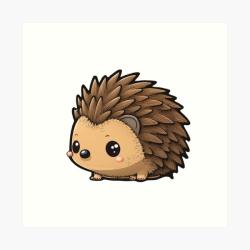Using Infant Massage to Alleviate Postpartum Depression

.jpg)
"Having a baby can be one of the most exhilarating and joyful experiences, but for some women, postpartum depression can make the transition into motherhood very difficult. Postpartum depression can start during pregnancy or after childbirth and typically includes symptoms of extreme sadness, anxiety, insomnia, or changes in appetite and energy levels.
It's estimated that one in seven women experience postpartum depression (Mughal et al., 2022). Depression and anxiety during pregnancy, a family history of depression, stressful events, and limited support have been strongly associated with postpartum depression (Robertson et al., 2004). Untreated postpartum depression not only impacts the mother but can also negatively affect the baby and early attachment.
Treatment options for postpartum depression often include using antidepressants, counseling, hormone therapy, or injections such as Zulresso. Other alternative treatments may include dietary interventions, exercise, yoga and meditation, sun exposure, and increasing social support. In addition, infant massages serve as another complementary approach that may help relieve postpartum depression symptoms and improve mother-infant interactions.
Benefits of Infant Massage
Infant massages consist of soft, rhythmic stroking of a baby’s body that encourages relaxation and connection. It is believed that when mothers give their babies a massage, the hormone oxytocin is released, which can have positive effects on mood. Mothers also learn their baby's cues and see how their babies respond to their touch. Even at an early age, babies can communicate by vocalizing pleasure or displeasure with certain strokes and techniques.
According to the International Association of Infant Massage (IAIM) health benefits for the baby may include improved self-regulation and sleep, stimulation of body systems (including digestive, hormonal, immune, and circulatory systems), joint mobility, and better coordination and body awareness. Several studies have found that infant massages may improve bonding and help decrease postpartum depression.
Regarding their experiences with the infant massages, mothers reported feeling attached to their babies and attentive to their baby's cues. They reported how the massages gave them a way of communicating with their baby when they initially didn't know how. Overall, mothers expressed positive experiences with the infant massages and saw this practice as an opportunity for emotional and physical connection with their babies (Midtsund et al., 2018).
When it comes to postpartum depression, make sure to seek out appropriate medical care for you and your child. Using infant massages may serve as an additional tool to increase bonding and alleviate postpartum depression symptoms, but it shouldn't take the place of other necessary treatments. Massaging your baby can be a joyful and interactive experience for you and your baby and help you get to know each other through shared vocalizations, smiles, and cues."
*Postpartum depression is something that many moms (and dads!) experience after having a baby. It can be a tough transition into parenthood and something that needs to be taken seriously. It's important that new parents feel supported because becoming a new parent is such a huge transition and something that shouldn't be done without support. My mom struggled with postpartum depression after having me as a baby and she has shared how difficult it was for a while and the adjustment it took. There are so many great resources out there and treatments to help navigate postpartum depression! There's absolutely no shame in seeking help and support during this difficult time. Do you know anyone that has struggled with postpartum anxiety or depression? What are some tips that you know of that may be helpful during this difficult time?*
If anyone is struggling, you can reach out to Postpartum Support International at any time! They have a Helpline that you can call or text at 1-800-944-4773 in English or text in Spanish at 971-203-7773!
You can also get more help at the National Maternal Mental Health Hotline. They are equipped with counselors and crisis resources 24/7. You can call them at 1-833-943-5746.
#PostpartumDepression #PPD #PostpartumAnxiety #PPA
Please find the full article at Psychology Today!
If you are looking for more information on postpartum depression, you may like this article on the father's experience!

